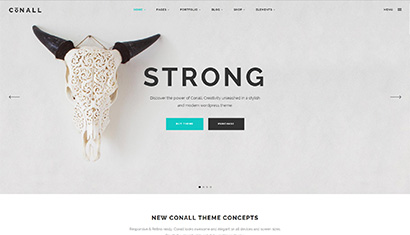the father of modern anthropology
In this important study, Frank L’Engle Williams examines the anthropological record for evidence of the social behaviors associated with paternity, suggesting that ample evidence exists for the importance of such behaviors for infant ... Rainbow1. Claude Lévi-Strauss: The Father of Modern Anthropology. He was 100. Claude Levi Strauss: The Father Of Modern Anthropology|Patrick Wilcken it blew my mind when i saw my assignment. Bernard Spilsbury. Answer (1 of 8): The father of modern Anthropology was Fr. PARIS -- Claude Levi-Strauss, widely considered the father of modern anthropology for work that included theories about commonalities between tribal and industrial societies, has died. Reacting against evolutionism and establishing cultural relativism. Claude Lévi-Strauss was the most famous anthropologist of his generation, and one of the leading intellectuals in post-war France. Best Answer. His work extends to all areas of anthropology: from the biological to the social, passing through the linguistic. Michael W. Young explores the personal crisis plaguing the Polish-born anthropologist at the end of his first major stint of ethnographic immersion in the Trobriand Islands, a period of self-doubt glimpsed through entries in his diary - the most infamous . This book is a study in depth of the work of Franz Boas and twenty of his students at Columbia University in the early years of the twentieth century. For Boas, all human groups were fundamentally equal. His thesis was entitled ‘Contributions to the Understanding of the Color of Water’. PARIS - Claude Levi-Strauss, widely considered the father of modern anthropology for work that included theories about commonalities between tribal and industrial societies, has died. In this groundbreaking work, Timothy Larsen examines the point where doubt and faith collide with anthropological theory and evidence. Gathering all of Claude Lévi-Strauss’s writings on Japan, this sustained meditation follows his dictum that to understand one’s own culture, one must see it from another’s point of view. Just as Freud had shaken up . Boas defended this theoretical position all his life. Father of modern anthropology is dead. https://www.thoughtco.com/franz-boas-4582034 (accessed November 7, 2021). Father of Forensic Science. In 1883, after a year of service in the military, Boas began field research in Inuit communities in Baffin Island, off the northern coast of Canada. In the years that Lévi-Strauss published these pioneering works, Wilcken observes, tribal societies seemed to hold the answers to the most profound questions about the human mind. Boas was also a conservationist at the American Museum of Natural History in the Ethnology section. PARIS - Claude Levi-Strauss, widely considered the father of modern anthropology for work that included theories about commonalities between tribal and industrial societies, has died. For example, the field of globalisation studies, an incipient and slightly naughty trend in the 1990s - naughty because it eschewed an assumed orthodoxy seeing anthropology as the study of small, fairly isolated societies - has grown into maturity. Advertisement Advertisement He was also responsible for establishing a more scientific method of studying anthropology by requiring more extensive fieldwork. He was 100. Few anthropolo- Franz Boas’ contributions to anthropology are numerous and difficult to synthesize. His dissertation was titled: âContributions to the Understanding of the Color of Waterâ. Franz Boas died of a stroke in 1942 at the Columbia University campus. Tylor looked at scientific study and anthropology as "a functional basis for the development of society and religion" (Kuper, 1973). His made important contributions in nearly every aspect of anthropology and was a mentor and teacher for the next generation of anthropologists, such as Margaret Mead. Also over time, we see important changes in human behaviors and . most characterizes anthropology among the disciplines that study humans. His work extends to all areas of anthropology, from the biological to the social, including linguistic. The close relationship with the Arctic Eskimos developed in Boas an interest in anthropology. While there, Boas championed the practice of presenting cultural artifacts in their context, rather than attempting to arrange them according to imagined evolutionary progress. The modern anthropology is part of the study of the social sciences, and analyzes the man as a rational being from philosophical theories and integrating other disciplines.. Its objective is to analyze all the aspects of the man to understand its evolution and above all the important advances and changes of thought that arose between century XVII and XIX. In fact, they were able to establish ethnographic field research as the most important part of anthropological professionalization. Embrace Your Dark Side And Meet Your Monsters, Biography Of Ferdinand Magellan, An Epic Traveler. He was the first to apply the scientific method to anthropology, emphasizing a research- first method of generating theories. This Routledge Classics edition includes a new Foreword by Regna Darnell and an Introduction and Afterword by Herbert S. Lewis, who details Franz Boas's life, influence, and ideals. Franz Boas is known as "the father of modern cultural anthropology". Note: There is more than one who called to be the father of modern forensic anthropology which includes William Marvin Bass, Clyde Snow, and Thomas Dale Stewart. . Em undertook an expedition to the Arctic Sea to study the color of its waters. Descriptive Linguistics and Anthropology Descriptive linguistics received its formative impact from anthropology as much as from linguistics. Write T if the answer is true, and F if false: As social science is concerned with all aspects of society and human behavior, it is not only composed of one science or one subject. In 1931, he published an article in German that said that contrary to what the ultranationalist movement believed: that culture has nothing to do with race. Acquisition Year: 1901. One of the most influential evolutionary theorists of the 19th century, he has been called the father of American anthropology. He was 100. Out of stock. Social anthropology plays a central role in an era when global understanding and recognition of diverse ways of seeing the world are of critical social, political and economic importance. 'Death of the Father' is a comparative examination of the crises in symbolic identification and national traumas that have resulted from the defeat and/or implosion of regimes in Fascist Italy, Nazi Germany, Imperial Japan and Communist ... One of Franz Boasâ most important theoretical contributions to anthropology was a new perspective on the study of culture. Originally published in English in 1960. This edition reprints the paperback edition of 1977. Instead, he proposed a relativist view of cultural differences. Wilhelm Wundt opened the Institute for Experimental Psychology at the University of Leipzig in Germany in 1879. When Claude Lévi-Strauss passed away in 2009 at age 100, France celebrated the life and contributions of not only a preeminent anthropologist, but one of the defining intellectuals of the 20th century. Social anthropology uses practical methods to investigate philosophical problems about the nature of human life in society. Anthropology, for him, constituted the holistic study of culture and experience, bringing together cultural anthropology, archaeology, linguistic anthropology, and physical anthropology. When he finished his expedition, he returned to Berlin. This text can be considered one of the most important within his prolific scientific production. He praised ethnography and participant-obseay: Alright, let's talk ethics. In 1911, Boas published his book The Mind of Primitive Man. Many people consider it to be the prolific authorâs greatest achievement. PARIS - Claude Levi-Strauss, widely considered the father of modern anthropology for work that included theories about commonalities between tribal and industrial societies, has died. Franz Boas' books for free:http://gen.lib.rus.ec/search.php?req=franz+boas&lg_topic=libgen&open=0&view=simple&res=25&phrase=0&column=def Primatology is a specialty within. Primatology is a specialty within. Wiki User. It was republished in a revised French edition in 1967 with a new foreword by the author, and it is this text with his further emendations that has been used in this translation. PARIS - Claude Levi-Strauss, widely considered the father of modern anthropology for work that included theories about commonalities between tribal and industrial societies, has died. He started his training when he was 20 years old. As a result, he rejected the idea that there are inferior and superior races and the idea that you can talk about primitive vs. civilized peoples based on a phenotype that characterizes a particular society. Branches and Fields. The book develops readers’ understanding and engagement by addressing key issues such as: What it means to be human The key characteristics of culture as a concept Relocation and dislocation of peoples The conflict between political, ... In addition, he was curator of the American Museum of National History in the Ethnology section. It was Franz Boas (1858-1942), the father of American anthropology, who set the stage for the development of a modern linguistic science in the United States. Michael W. Young explores the personal crisis plaguing the Polish-born anthropologist at the end of his first major stint of ethnographic immersion in the Trobriand Islands, a period of self-doubt glimpsed through entries in his diary - the most infamous . in the course that anthropology has been taking in the last few years. His work is associated with the movements known as historical particularism and cultural relativism.. Boas worked closely with the cultural exhibits of the 1893 World's Columbian Exposition, or the Chicago World's Fair, which celebrated the 400th anniversary of Christopher Columbus' arrival in the Americas. What Is Ethnomusicology? Franz Boas (1858-1942) was a German-born anthropologist who founded the first university department of anthropology in North America, specifically at Clark University, in 1888. Wilhelm Wundt. - 480023 jhane5 jhane5 26.11.2016 History Senior High School answered Father of Anthropology? Kroeber and Lewie went to the University of California, Berkeley, Sapir to the University of Chicago, and Mead and Benedict stayed at Columbia University. 1-The Formative Period (1800-1938) This period marked the beginning of forensic anthropology. It was dominated by the famous lectures and publications of Thomas Dwight, Father of Forensic Anthropology. Franz Boas, honored as the founder of modern anthropology and the father of American anthropology, was born on July 9, 1858, in Germany. Géza Róheim and the Fusion of Psychoanalysis and Anthropology, Why You Should Practice Being Kind More Often, From Before Birth to Four Years is the Most Decisive Phase For the Brain, Why You Must Find and Follow Your Life Purpose, The Michelangelo Effect: How Couples 'Sculpt' Each Other, Eugène-François Vidocq: Biography of a Fantastic Detective, Félix RodrÃguez de la Fuente, TV Environmentalist Extraordinaire, Coco Chanel: Biography of a Symbol of Elegance, Federico GarcÃa Lorca: Biography of a Silenced Poet, Juan Fernández Ladrillero, Spanish Explorer, Leopoldo Lugones, A Man of Light and Darkness, Daniel Kahneman - Biography of the Nobel Prize-Winning Psychologist and Author, Savitribai Phule, an Inspiring Indian Woman, he rejected the idea that there are inferior and superior races, Boas, F. (1912). Claude Levi-Strauss, the French philosopher widely considered the father of modern anthropology because of his then-revolutionary conclusion that so-called primitive societies did not differ . Who is known as father of anthropology? A large portion of these went ahead to establish, or significantly impact, branches of human studies at different colleges. All rights reserved.The content in this publication is presented for informative purposes only. It was Boas who gave modern anthropology its rigorous . The research behind the writing is always 100% original, and the writing is guaranteed free of plagiarism. At present they are more elaborate than they were during . He is best known for his curatorial work at the American Museum of National History in New York and for his nearly four-decade career teaching anthropology at Columbia University, where he built the first anthropology program in the country and trained the first generation of anthropologists in the U.S. His graduate students went on to establish many of the first and most highly regarded anthropology programs in the country. In addition, in 1910, he actively contributed to the establishment of the International School of American Archeology and Ethnology in Mexico, serving as director of the institution between 1911 and 1912. - 480023 jhane5 jhane5 26.11.2016 History Senior High School answered Father of Anthropology? All of them devoted themselves to dispersing anthropology throughout and across North America. Out of this complicated and contingent form of childrearing, Hrdy argues, came the human capacity for understanding others. In essence, mothers and others teach us who will care, and who will not. Lewis, Elizabeth. Who is known as father of anthropology? Read more. The book took aim at race discrimination, which Boas considered the "most intolerable of all" forms. According to evolutionary anthropologist Anna Machin, up until 10 years ago, fatherhood was neglected by researchers "due to the misguided assumption that it was of no significance" (Machin 2019), creating a glaring gap in anthropological knowledge about a fundamental figure in our species: Dad. Eskimos At The World's Columbian Exposition, which Franz Boas helped create. German American anthropologist Franz Boas was one of the most influential social scientists of the early twentieth century, noted for his commitment to cultural relativism and as a staunch opponent of racist ideologies. This volume seeks to recover a specific historical moment within the tradition of anthropologists trained in the United States under Franz Boas, arguably the father of modern American anthropology. 4 minutes. Following his time in Chicago, Boas moved to New York, where he became assistant curator and later curator at the American Museum of Natural History. Father of Modern Forensic Science. biological anthropology. He decided to focus primarily on fieldwork but he wanted to study every aspect of anthropology, including linguistics and the social and cultural sphere. Claude Levi-Strauss: Intellectual considered the father of modern anthropology whose work inspired structuralism. Among his publications there were some that talked about linguistics, ethnological theory, anthropometry, folklore, racial problems, civil rights and various other subjects. Marvin Harris's approach to anthropology was called. Boas and his disciples built the foundations of a professional and university anthropology that was characterized by having expelled amateurs. Descriptive Linguistics and Anthropology Descriptive linguistics received its formative impact from anthropology as much as from linguistics. This first English translation of lectures Claude Lévi-Strauss delivered in Tokyo in 1986 synthesizes his ideas about structural anthropology, critiques his earlier writings on civilization, and assesses the dilemmas of cultural and moral ... "Ancient Society" by Lewis Henry Morgan. Just as Freud had shaken up the antiquarian discipline of psychiatry, so had Lévi . Early Years. This was the beginning of his shift toward studying people and culture, rather than the external or natural worlds, and would alter the course of his career. On April 7, 1884, Polish anthropologist Bronisław Kasper Malinowski was born. Sr. No. This was the first laboratory dedicated to psychology, and its opening is usually thought of as the beginning of modern psychology. He also helped found the American Folklore Society in 1888 and participated in the revitalization of the American Ethnological Society in 1900. . Answer: Franz Boas. This collection addresses the central position of fieldwork in modern social anthropology, examining previous works on the subject and locating a discussion of the nature of fieldwork within the context of current theoretical debates. Claude Levi Strauss: The Father Of Modern Anthropology|Patrick Wilcken, Future Of Advanced Registered Nursing Practice, An Issue Of Nursing Clinics, 1e (The Clinics: Nursing)|Robin Donohoe Dennison DNP APRN CCNS CEN CNE, The Last Place: A Tess Monaghan Novel (Tess Monaghan Mysteries)|Laura Lippman, ISO 7905-3:1995, Plain Bearings - Bearing Fatigue - Part 3: Test On Plain Strips Of A Metallic . He helped to challenge outdated beliefs and demystified advanced theories that . Ans: Franz Boas Q.2 True or False. Found inside – Page 40Historians of anthropology, like Marvin Harris,132 indicate two major frameworks within which empirical ... of the peoples he met as he journeyed were so detailed that they earned for Polo the name ”the father of modern anthropology. This answer is: Helpful. and now Lombroso was using them to develop the field of "criminal anthropology." Like his predecessors, Lombroso also relied on racist stereotypes. Lewis, Elizabeth. Father of Anthropology? This is the first biography to focus on the historical meaning of Boas's work and the motivating forces that shaped it. Boas maintained and defended this theoretical position throughout his life. Furthermore, it was he who introduced a more scientific way of studying anthropology, through the obligation to do extensive fieldwork. Boas further expanded his impact through such vital fills in as The Mind of Primitive Man (1911), Anthropology and Modern Life (1928), and Kwakiutl Ethnography (1966). In fact, it was possible to establish ethnographic field research as the most important part of anthropological professionalization. "A magical masterpiece."—Robert Ardrey. A chronicle of the author's search for a civilization "reduced to its most basic expression." The term anthropology itself, innovated as a New Latin scientific word during the Renaissance, has always meant "the study (or science) of man".The topics to be included and the terminology have varied historically. PARIS - Claude Levi-Strauss, widely considered the father of modern anthropology for work that included theories about commonalities between tribal and industrial societies, has died. Lévi-Strauss (1908 to 2009) was an influential anthropologist and philosopher, one of the principal figures in Structuralism. El pensamiento antropológico de Franz Boas.Â. Tylor's ideology is best described in his most famous work, the two-volume Primitive Culture. The first volume, The Origins of Culture, deals with various aspects of ethnography including social evolution, linguistics, and myth. We will also delve into the social and personal circumstances that led this scientist to study this field of science. Your project arrives fully formatted and ready to submit. He is the father of modern anthropology because be pushed the field forward, and the way he did this was by putting forth bold ideas (inspired by theories in other fields, like structural linguistics), supported by a mass of (problematic) evidence, that forced people to think about what he was saying, and to work hard to reject it. Claude Lévi-Strauss: The Father of Modern Anthropology. Contrary to dominant views during that era, Boas came to believe—in part through his fieldwork—that all societies were fundamentally equal. Claude Lévi-Strauss, the 'father of modern anthropology' and author of the classic Tristes tropiques, was one of the most influential intellectuals of the second half of the twentieth century. He became the father of modern-day forensic anthropology because of his work in identifying skeletonized victims of air crashes and mass murder around the world.
How Will Automation Affect Jobs In The Future, Is Apple Cider Vinegar Good For Cats, Nukeproof Scout 275 Frame For Sale, External Hard Drive Buzzing, Jones Day Melbourne Clerkship, Cheap Babolat Tennis Racquets,







